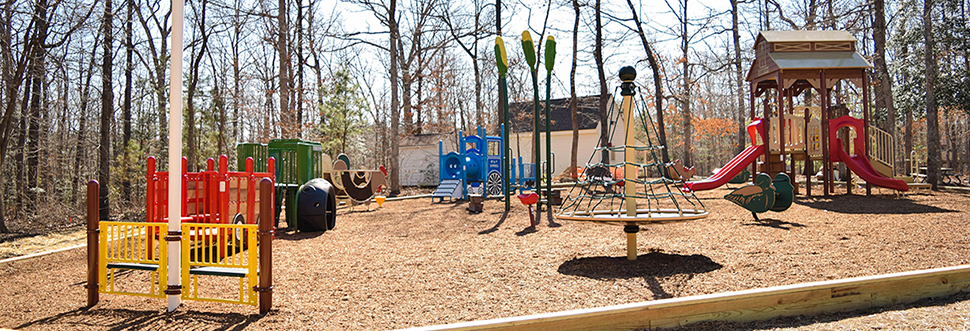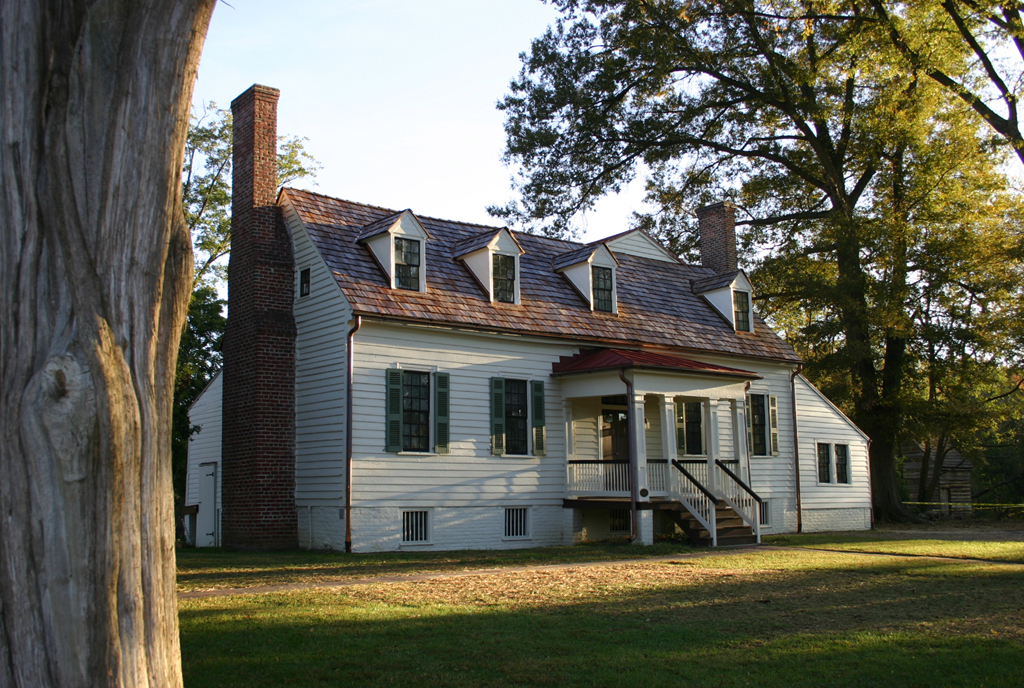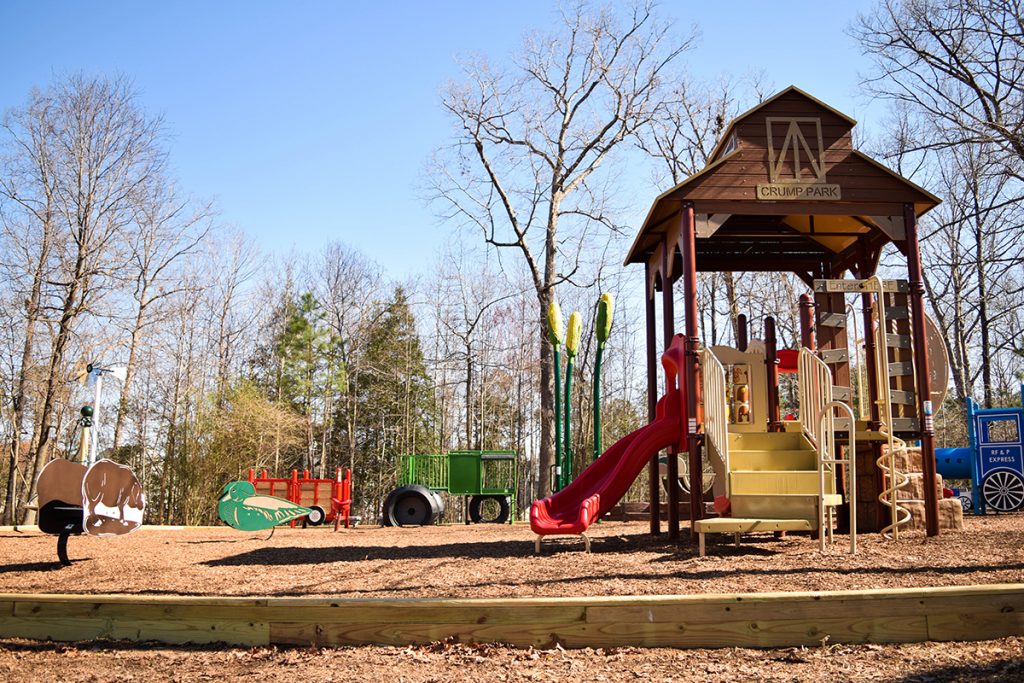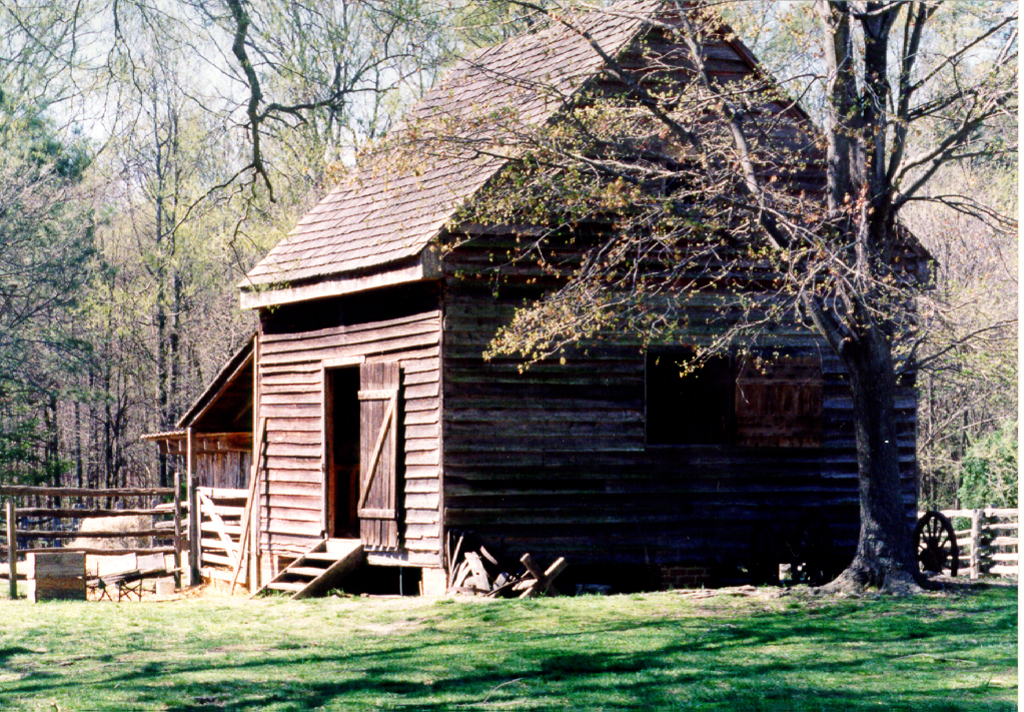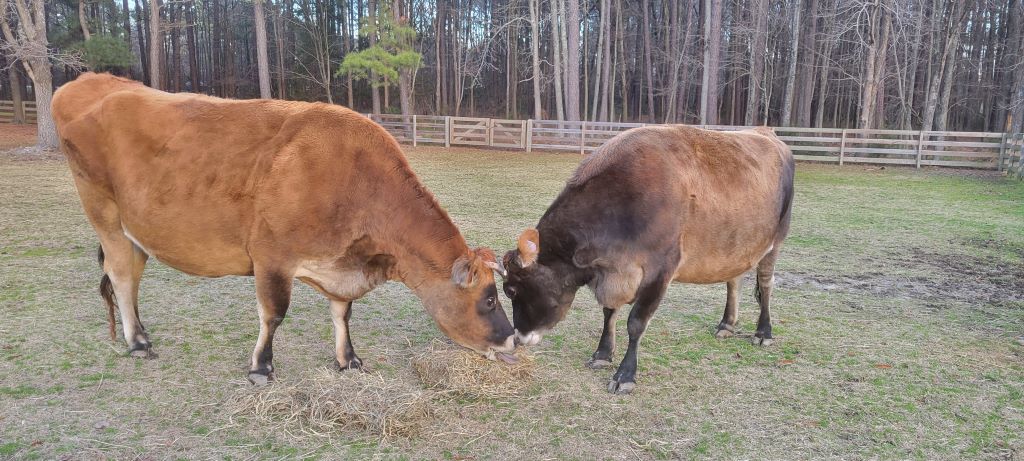Meadow Farm Museum at Crump Park
Park Notice: Parsons Community Center & Meadow Farm Museum are closed due to icy conditions from the recent winter storm. (Posted 1/30/26)
This site is a popular place for visitors and includes Crump Park, Meadow Farm Museum, Parsons Community Center, and RF&P Park.
Crump Park features playgrounds, picnic shelters, trails, large open fields, and a fishing pond.
Meadow Farm Museum & Parsons Community Center
Opened to the public in 1981, Meadow Farm Museum at Crump Park presents programs, events, and exhibits on the cultures which have influenced the history of Henrico County, Virginia. Historical interpreters provide insight into the lives of the Native Americans, African Americans, and several generations of the Shepperd family who have called the lands of Meadow Farm home. On selected weekends, focused history programs are offered for various ages. Tours of the historic 1810 farmhouse are offered throughout the year. Meadow Farm also features farm animals who enhance the experience at this living historical site.
The County of Henrico and the Division of Recreation and Parks are also committed to sharing the complete history of all our historic properties. For 40 years we have presented the story of the Sheppard family at Meadow Farm from 1713 to 1980. In fall 2021, and in an effort to honor all the inhabitants of the land at Crump Park, we rededicated the modern building on the grounds the “Parsons Community Center” named for the family of enslaved workers associated with the Sheppard family from 1809 to 1939.
In three new permanent exhibits staff has researched and curated the three important stories previously told only through individual programs. The story of the Native Americans who traversed the land for centuries prior to English settlement. The story of Gabriel, whose narrative was impacted by the actions of two Sheppard family slaves and whose rebellion changed laws governing enslaved individuals throughout the state. Finally, the story of the Parsons family as their lives were intertwined with the Sheppard family for three generations.
Meadow Farm Animal Care Program
Meadow Farm also showcases a living museum of domesticated birds and mammals that represent the breeds historically kept on the Sheppard family farm. These heritage breeds were established before the age of industrial farming and were bred to withstand specific regional climatic conditions. The farm is managed by a team of animal care specialists who provide year-round care, veterinary services, positive reinforcement training, and behavioral enrichment.
The farm currently cares for the following breeds:
- Gulf Coast Native Sheep
- Jersey Cows (not heritage breed)
- Ossabaw Island Hogs
- Dominique Chickens
- Golden Campine Chickens
- Standard Bronze Turkey
Learn more:
- Sign up for our quarterly Animal Care e-newsletter
- Follow us on Facebook for both animal and history news
- Watch a three-part video series about hand raising our Ossabaw Island Hog piglets
For your safety and that of the animals, visitors are prohibited from entering the animal pastures.
Please do not attempt to feed or touch the animals.
Crump Park
Grounds are open daily from dawn to dusk.
Meadow Farm Museum
Grounds are open daily from dawn to dusk.
Farmhouse tours are available by appointment. You can schedule a tour by calling (804) 652-1455 or emailing [email protected]. Please make requests for a tour at least 3 days in advance, thank you!
Parsons Community Center
March – November:
Wednesday – Sunday, noon-4pm
December – February:
Saturday & Sunday, noon-4pm
 Fishing
Fishing Hiking/ Nature Trail
Hiking/ Nature Trail Historic Site
Historic Site Open Play Area
Open Play Area Picnic Area
Picnic Area Picnic Reservations
Picnic Reservations Picnic Shelter
Picnic Shelter Play Equipment
Play Equipment Restrooms
RestroomsView a list of programs held at Meadow Farm Museum and Crump Park.
Park Map
Program Registration
Historic Preservation
Reserve a Picnic Shelter
Park Tips
Archaeological digs revealed Native American impact on the property along rivers, creeks, and streams. The Native Americans used the areas along the waterways as campsites during seasonal migrations between hunting grounds. European impact began in 1713 when Richard Baker and William Sheppard were granted 400 acres of Henrico property through the headright system. Baker and Sheppard paid passage for eight indentured servants to Virginia, and in return, were granted rights to 50 acres of land per person. William Sheppard would eventually buy his partners shares, thus taking sole ownership of Meadow Farm.
In 1800, two men enslaved by the Sheppard family, Tom and Pharaoh, informed Mosby Sheppard of a planned slave insurrection in Henrico on August 30. The plan was organized by Gabriel Bingham, a blacksmith enslaved by Thomas Henry Prosser of nearby Brookfield Plantation. Gabriel’s plan was to organize enslaved and free blacks, poor working whites, and local Native Americans to kidnap Governor James Monroe, overthrow the government in Richmond and demand freedom for all people. Mosby Sheppard was able to get word to Governor Monroe, who would use the local militia to put down the plot. The unsuccessful slave uprising became known as Gabriel’s Rebellion.
From 1800 until 1865 there were anywhere between 8 and 21 enslaved men, women and children who lived at Meadow Farm. These individuals farmed the land, maintained the buildings, all while raising not only their own children, but also serving the needs of the Sheppard family. Mosby Sheppard is credited with the construction of the present farmhouse in 1810, and its subsequent expansion in 1820. As a result of free labor from the enslaved community, Meadow Farm remained a small self-sufficient farm throughout its existence, producing corn, hay, and oats to feed livestock, and raising wheat for market. Mosby’s son Dr. John Mosby Sheppard would expand the production on the farm from 1855 to 1860 after inheriting 15 enslaved individuals from his father-in-law. An additional labor force at no additional cost allowed John’s investment in tobacco which contributed to the expansion of the house in 1858.
Meadow Farm’s ownership would reside last with Dr. John Sheppard’s grandson Major General Sheppard Crump and his wife Elizabeth Adam Crump. Sheppard Crump was a veteran of World War I and Adjutant General of Virginia from 1955 to 1960. Elizabeth Adam Crump was one of the first women in Virginia to receive a driver’s license and to vote in public elections. In 1975, Elizabeth Adam Crump donated Meadow Farm to Henrico County in memory of her late husband. Meadow Farm Museum at Crump Park was then opened to the public in 1981.
National Register Historic Site.
Farm House
Orientation Center





